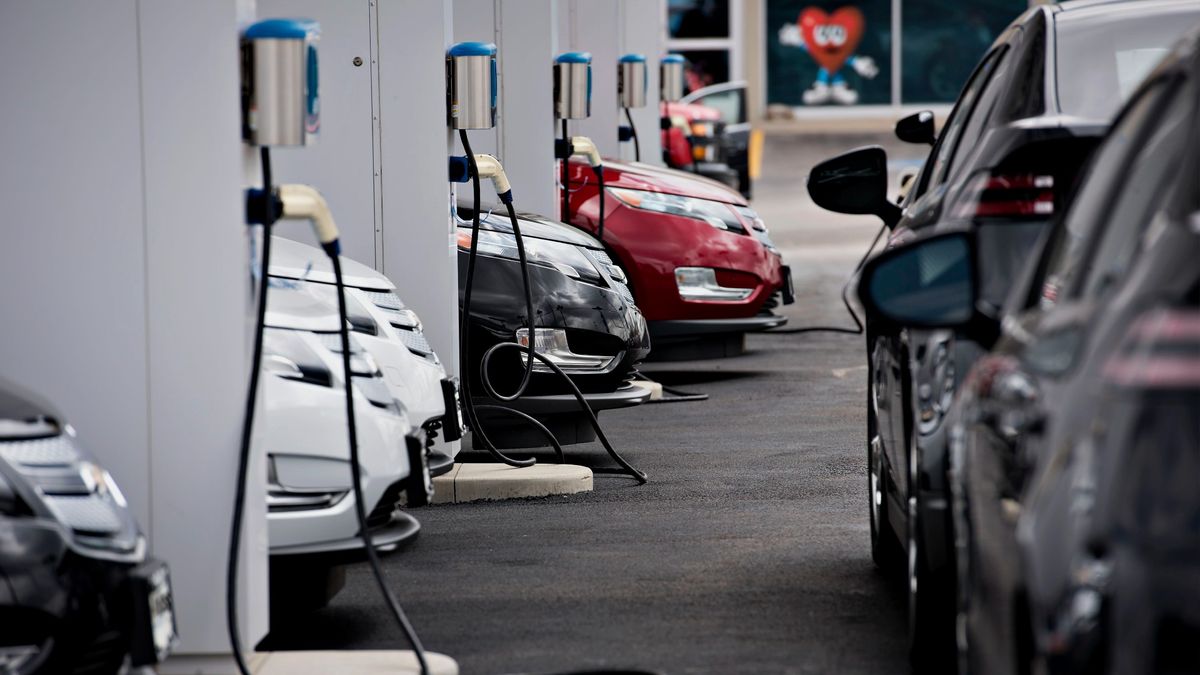
If there's been any trend in the auto industry over the past decade, it's undoubtedly the rise of electric cars. The majority of automakers now offer some form of a gas-free vehicle. A new electric car, once seen as a luxury item, can now be purchased for less than $30,000.
However, the majority of electric vehicles (EVs) are still significantly more expensive than their gas-powered counterparts, and it seems some industry analysts are pointing toward an overall decline in electric car sales as a result. A recent report in The Wall Street Journal noted that "automakers and dealers are slashing prices and piling on discounts to clear out unsold inventory" because "sales growth has slowed for battery-powered models." Some automakers are also offering significant cash rebates for people who buy EVs.
These rebates represent "another sign that the once-hot market for these models is losing its charge," the Journal added. Numerous stories in other news outlets have seemingly corroborated this fact. But are electric car sales really declining, or are there other factors at play?
Subscribe to The Week
Escape your echo chamber. Get the facts behind the news, plus analysis from multiple perspectives.
SUBSCRIBE & SAVE
Sign up for The Week's Free Newsletters
From our morning news briefing to a weekly Good News Newsletter, get the best of The Week delivered directly to your inbox.
From our morning news briefing to a weekly Good News Newsletter, get the best of The Week delivered directly to your inbox.
What does the data on EVs show?
The main argument promoting a slump in EV sales is automakers continually slashing prices on their electric models. Elon Musk's Tesla — which is planning to sell its 2025 Roadster for $200,000 — "has slashed prices this year across its lineup, reducing the starting price of some models by roughly a third," the Journal reported.
Numerous other automakers have backtracked on their EV plans. This includes "Ford announcing it was postponing $12 billion in planned electric vehicle production, GM abandoning a goal to build 400,000 electric vehicles through mid-2024 and Volkswagen Group canceling plans for a new $2 billion EV factory in Germany," Forbes reported. Similar pauses have been seen by Honda, Toyota and Mercedes-Benz. The latter's CFO, Harald Wilhelm, "described the EV market as a 'brutal space' as the company continues to discount vehicles," per Money.
As demand seemingly dwindles, unsold inventory of EVs is rising at dealerships. Currently, the days' supply of EVs — the amount of time it would take to deplete the current inventory of electric vehicles — averages 88 days, Pat Ryan, CEO of car shopping app CoPilot, told Money. This figure has more than doubled since 2022. It is also significantly higher than the days' supply of traditional gas cars, which averages 59 days. "Traditional automakers overestimated the current demand levels for EVs and are building more vehicles than they currently need," Ryan said. "At the same time, the traditional automakers are losing money as they venture into EVs."
Are sales really slowing?
Despite evidence of a market slump, "the data shows none of that is true," Heatmap reported. While the majority of EV automakers are heavily cutting their prices, this may be a moot point because "dealer discounts are trending steadily upwards for all vehicles in recent months, not just electric models."
Sales data cited by Heatmap actually show that "sales of battery electric and plug-in hybrid vehicles in the third quarter of 2023 exhibited the strongest year-on-year growth since the fourth quarter of 2021." The outlet also noted that sales of EVs topped one million for the first time ever this September. The main reason for a narrative of slowing EV sales, Heatmap argued, is a combination of "Tesla's defensive price war and rising interest rates which have forced some incumbents to rethink their strategies." This is because "for most of the last decade, Tesla has basically had the EV market to itself." This has allowed Tesla to price even their mass-market models at a premium. But now that longstanding automakers like Ford, GM and Honda have planted their feet in the world of EVs, Tesla must re-strategize, Heatmap wrote.
There's also the question of the EV component that drives up the cost the most: batteries. And while EVs themselves may be expensive, "battery prices are resuming a long-term trend of decline," Bloomberg reported, meaning the task of creating affordable EVs "may get easier by one key metric." The average price of a lithium-ion battery pack fell to $139 in 2023, according to a Bloomberg price survey, a 14% drop from the $161 average seen last year. This represents the largest decline in the survey since 2018, and can be "primarily attributed to lower raw material costs," the outlet said.
With all of these factors combined, "it's clear that the ominous headlines about the 'slowing' EV market are more a story about Ford and GM in particular," Heatmap concluded, rather than a market slump in general.
Explore More
"electric" - Google News
December 10, 2023 at 04:36PM
https://ift.tt/TGI3kOF
Are electric vehicle sales really losing their charge? - The Week
"electric" - Google News
https://ift.tt/lD1QiRy
https://ift.tt/0pDK7y6
Bagikan Berita Ini














0 Response to "Are electric vehicle sales really losing their charge? - The Week"
Post a Comment